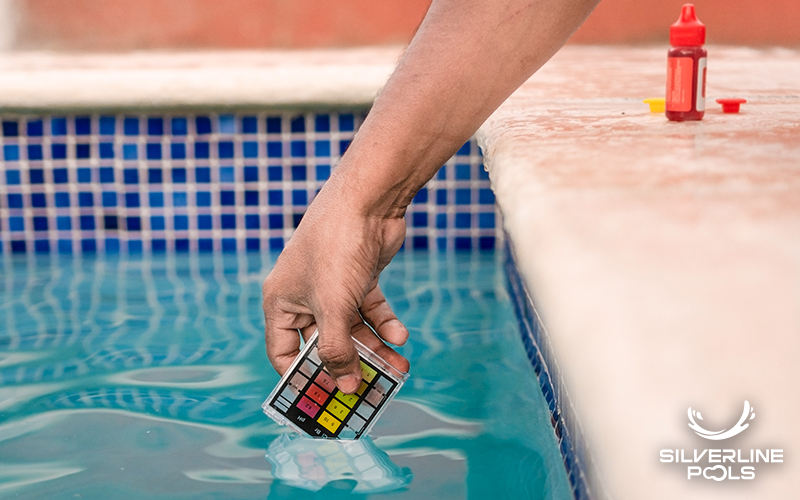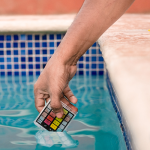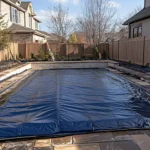Everyone loves a sparkling and bacteria-free pool. But keeping your pool free from germs and crystal clean requires regular testing of your pool chemicals. It also helps your pool equipment last longer, prevents harmful bacteria, and saves you extra money on pool maintenance.
This blog is a comprehensive pool water testing chemicals guide. It covers various testers for checking pool chemistry and how often you should test pool chemicals.
Let’s explain them further!
What are pool chemicals?
Swimming pool chemicals are the chemicals used for keeping your pool water clean and free from any bacteria. They normally include, chlorine or bromine, shock chemicals, cyanuric acid, balancers, calcium chlorides, algaecides, clarifiers, and flocculants.
Also Read: Do Pool Chemicals Expire
What’s the ideal range for pool water chemistry levels?
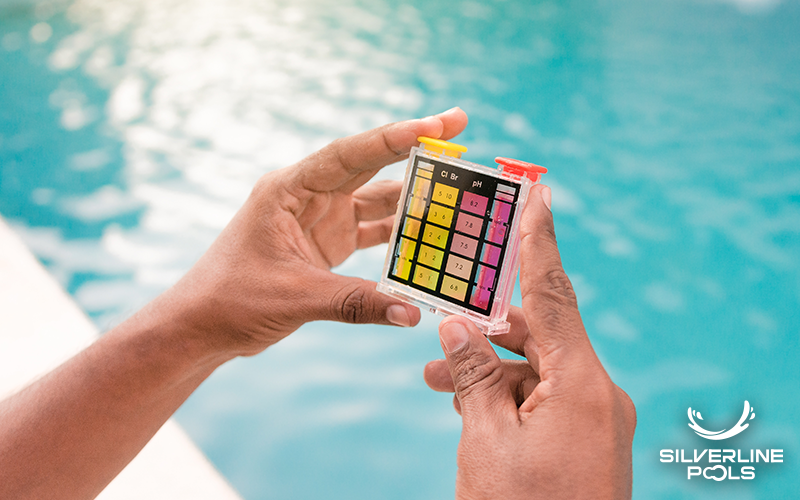
Maintaining your pool chemical levels in the ideal range ensures functional pool equipment, clean and bacteria-free water, and lower cleaning costs. Here is the ideal range of different pool chemicals:
- pH: 7.4 – 7.6
- Total Alkalinity: 80 – 120 ppm
- Calcium Hardness: 200 – 400 ppm
- Chlorine: 1 – 3 ppm
- Cyanuric Acid (Stabilizer): 30 – 50 ppm
- Total Dissolved Solids (TDS): Below 1,500 ppm
- Phosphates: Below 500 ppb (parts per billion)
How do I test my pool water chemistry?
Here are the three methods famously used for checking your pool’s chemicals:
Test Strips
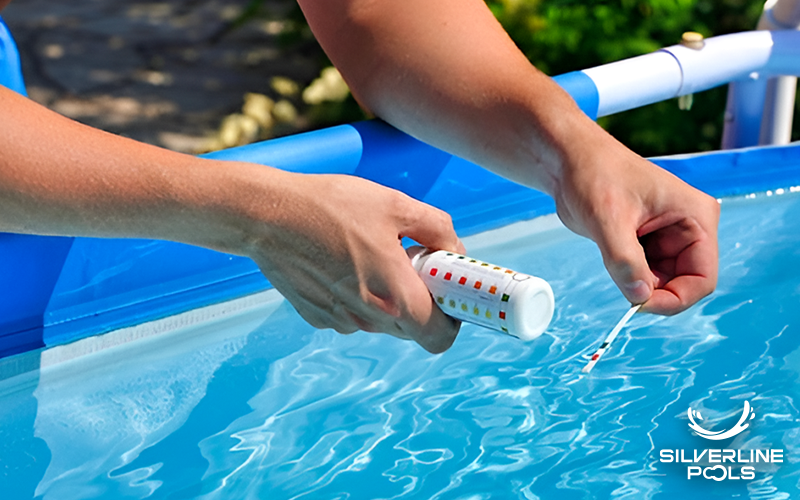
Test strips, also called dipsticks, are thin pieces of paper or plastic coated with chemicals. They are used for doing basic pool chemical tests such as checking pH, total alkalinity, or chlorine levels. They are portable and are best for doing fast checks.
Simply dip a test strip into your pool water for 30 seconds. Now remove it and wait for the colors to change. After that, compare the colors on the strip to the chart provided on the back of the bottle.
Liquid Testing Kits
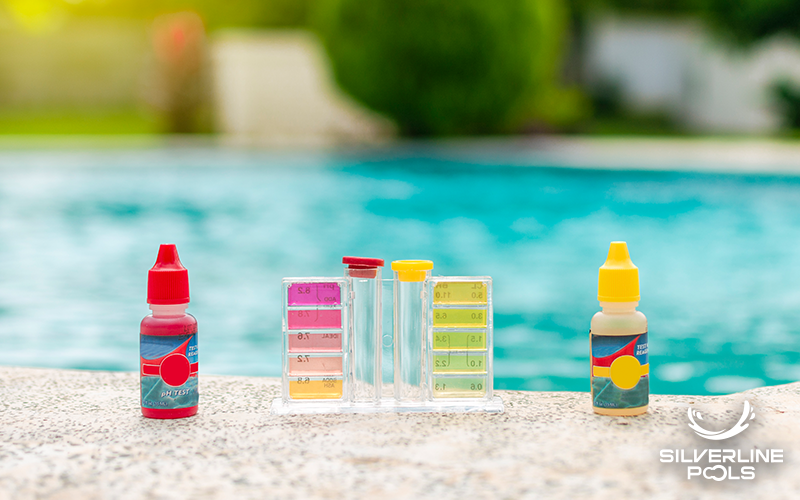
Liquid testing kits come with a vial, liquid reagents, and a color chart. They provide more precise readings than the ordinary test strips. They can test multiple chemicals at the same time and can accurately check pH, chlorine, total alkalinity, calcium hardness, and cyanuric acid (stabilizer).
Here is how to use them for your swimming pool’s water testing:
- Fill a test vial with pool water.
- Add a few drops of the test solution.
- Shake and check the color change.
- Compare the color chart to see your chemical levels.
Digital Pool Testers
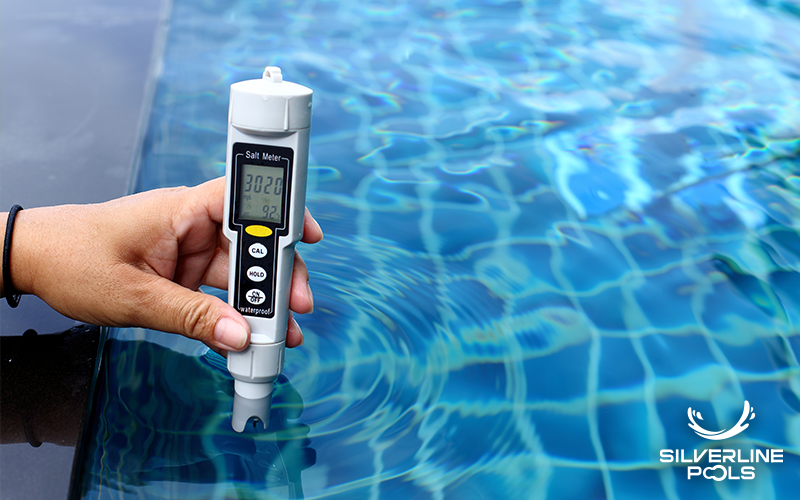
Digital pool testers are electronic devices with a sensor or probe for testing the water. Though they are more expensive, they provide highly accurate and fast results that are displayed on their digital screen.
The following are different types of digital pool testers used with different unique features:
Test Strips with an App
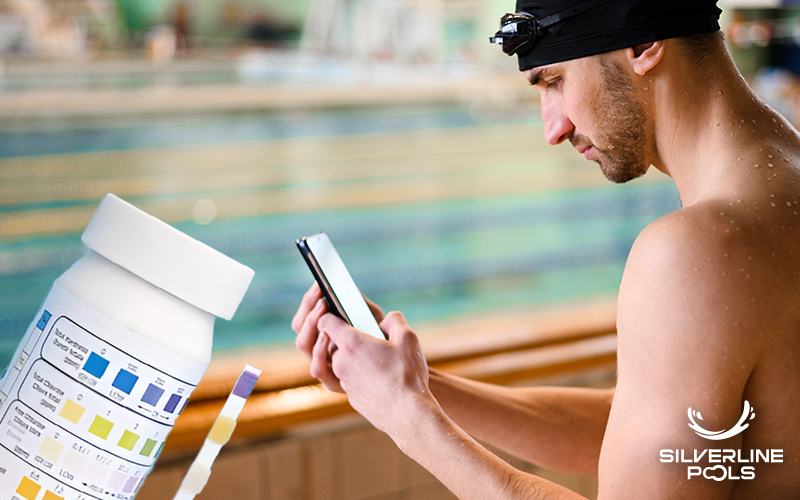
These digital strips are attached to an app on your phone or tablet. When the strip is dipped into the pool water, the pool owners or maintenance professionals receive a photo of pool chemical levels on their app.
Test strips with an app are easy to use and affordable, but their result accuracy depends on how accurately you dip the strip.
Specialty Test Strips with a Digital Reader
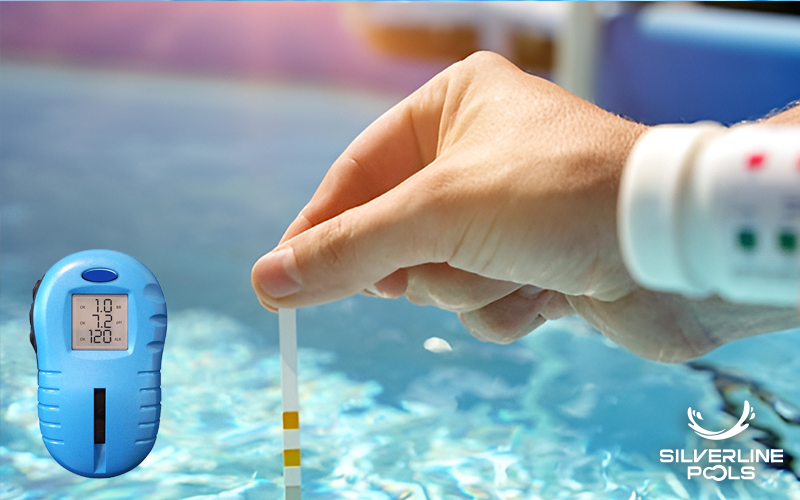
Specialty test strips with a digital reader give you the experience of both simple test strips and digital strips. You dip the test strip into your pool water, then insert it into a special reader which gives you related results.
All-in-One Testing Meters
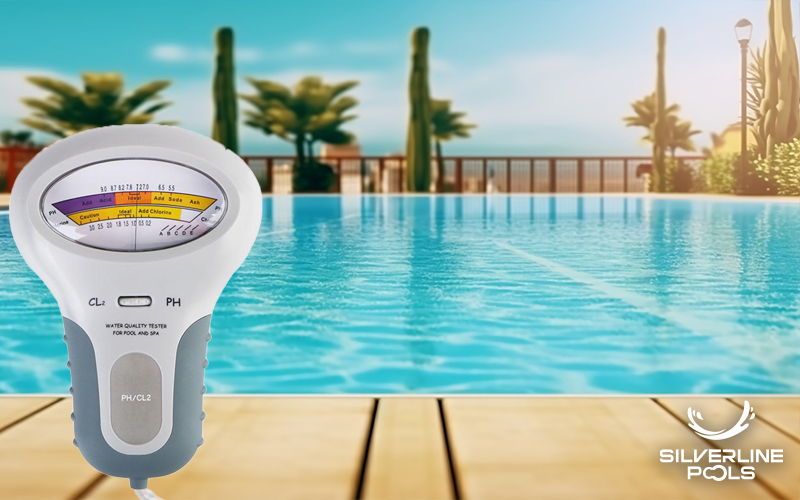
All-in-one testing meters come in two further types of pool chemical testers, including:
Electronic Testing Meter: You can dip the sensor into the pool, and the meter shows the results.
Floating Device: A sensor floats in the pool and sends the data to an app on your phone.
What is the purpose of testing pool chemicals?
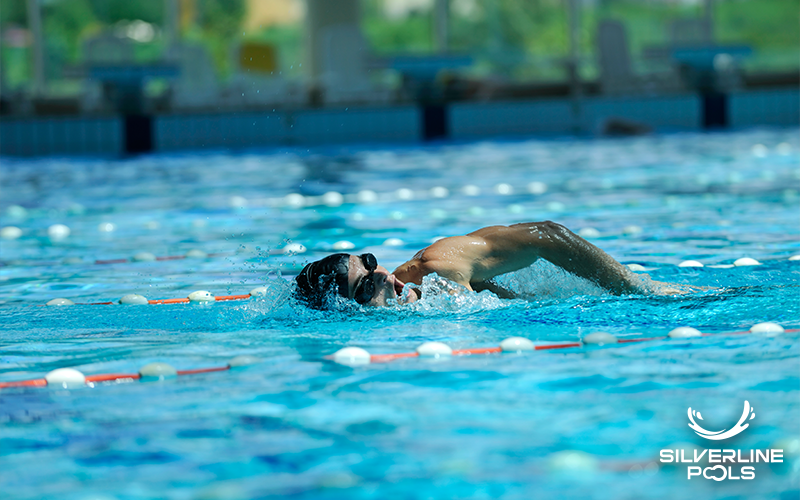
Now, the basic question arises: why do we need to test our pool chemicals. The simplest answer: to keep the pool water safe and clean for swimmers.
Regular testing of swimming pools’ chemicals is necessary to know about their current quantity in a pool. This helps maintain the pool if it requires a specific chemical as per the safe pool chemical dosage.
Pool owners and pool maintenance specialists usually check pool chemicals to figure out the levels of:
- pH
- Alkalinity
- Chlorine
- Cyanuric Acid (CYA)
- Calcium Hardness
- Total Dissolved Solids (TDS)
- Magnesium
- Phosphates
When to test my pool’s chemicals?
The table below shows when to test your pool’s chemicals based on different situations:
| Specific Situations | How Often to Test |
| Regular Maintenance | 1-2 times per week |
| After Heavy Pool Use | Immediately after the event |
| After Heavy Rain | After the rain, once a day for 2-3 days |
| After Adding Chemicals | 24 hours after addition |
| When Opening the Pool (Spring) | At least 3-4 times during the first week |
| When Closing the Pool (Fall) | 1-2 times before closing |
| If Water Looks Cloudy or Dirty | As needed, until the issue is fixed |
| If Swimmers Experience Irritation | Immediately after complaints |
Worried about choosing the best sanitizer for your pool? Read out this comprehensive guide:
Chlorine vs Bromine – Which is the Right Pool Sanitizer?
What are the benefits of pool chemical testing?
Here are the benefits of testing your pool chemicals promptly:
- Keeps water safe and clean for swimmers.
- Prevents pool equipment from corrosion and scale buildup.
- Reduces health risks, such as skin irritation or infections.
- Saves money by preventing costly repairs and excessive chemical usage.
- Ensures efficient filtration.
- Protects pool surfaces from damage by unbalanced chemicals.
Frequently Asked Questions
Where can I find the best pool chemical testing experts in Knoxville, TN?
Silverline Pools is the best company for providing pool maintenance services in Knoxville, TN. We expertly test your pool chemicals to know about the unbalanced chemistry.
Once everything is checked, we then use the right and fast-acting chemicals to bring your pool chemistry back to the ideal level for you to enjoy a pristine pool all season.
What is the best pool test kit?
Digital test kits are the best kits to check your pool’s chemicals. Though they are a bit expensive than other types, they give the most accurate and precise results for all the chemical levels.
Can I test pool water without a pool test kit?
Yes, you can test pool chemicals without using a test kit. However, the results cannot be that accurate. Here is how to do it:
Add a small amount of baking soda to the water to test the pH. If it bubbles, the pH is low.
To check chlorine, add a little pool water to a clear glass. If it smells like bleach, there is an indication of high chlorine levels.
Secondly, you can also do it using vinegar. Drop some vinegar into the pool water. If it bubbles, the alkalinity is high.
How often should I check my pool’s total chlorine?
For chlorinated pools, you can check the chlorine levels at least twice every week.
Wrapping Up
Swimming and enjoying a clean pool looks fun but over time the water chemistry can be unbalanced due to overuse, rain, high temperature, etc. For this, checking the pool’s water chemistry is very crucial to maintain a proper chemical balance.
Among various pool chemical testers such as test strips and liquid testing kits, the digital pool testers are widely used due to their accuracy.
For expert pool maintenance services in Knoxville, calling the experienced team of Silverline Pools saves you money and ensures a balanced-chemical pool for ultimate dips and fun.

